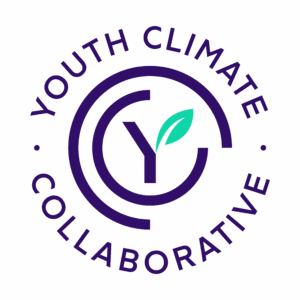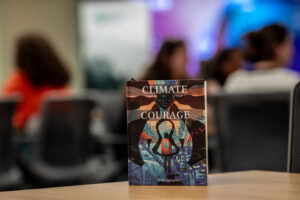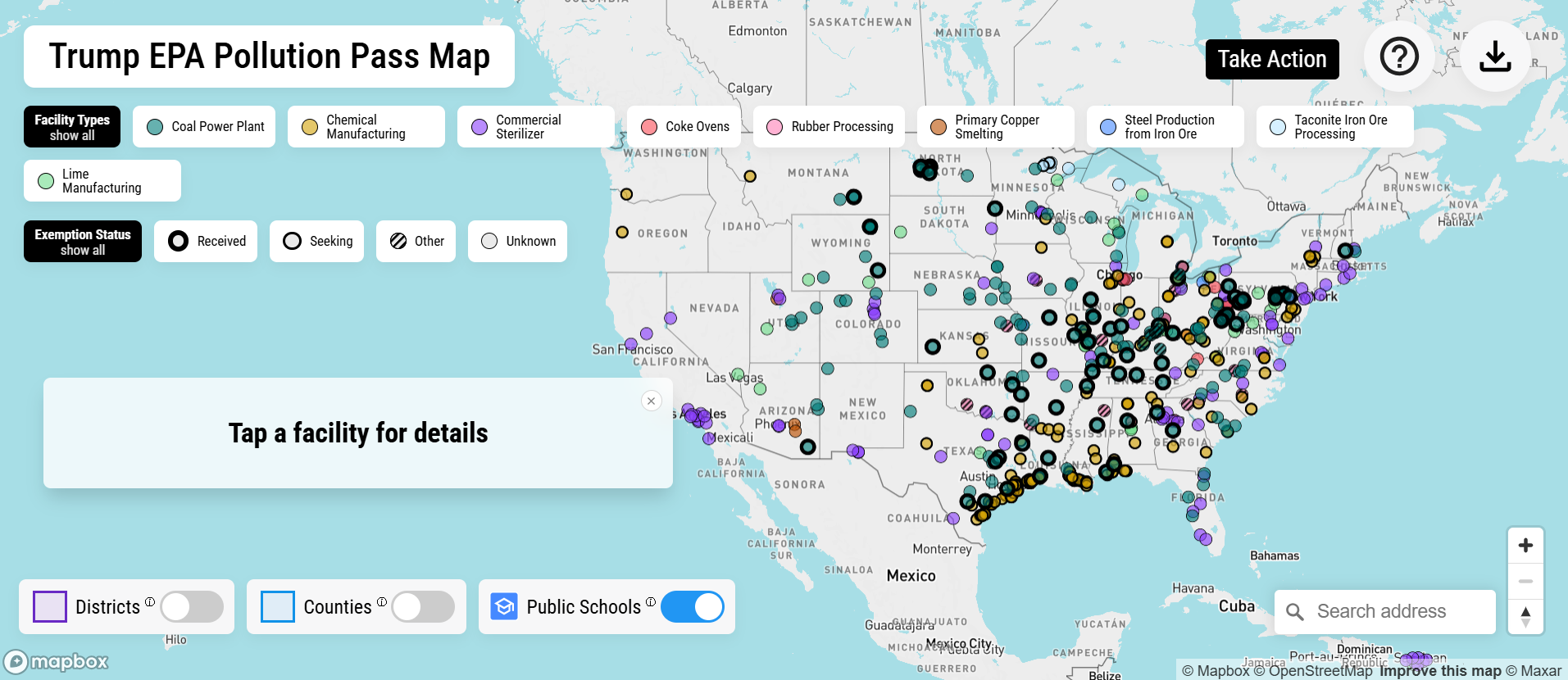This issue of Frontline Momentum highlights the importance of supporting emerging climate leaders and creating spaces or opportunities for youth leadership. The issue also includes a recap of DC Climate Week, key steps to take when starting an advocacy campaign, and a snapshot about the new Pollution Pass Map.
A Letter from FRI’s Acting Director, Dr. Margot Brown
I’ve had the distinct privilege of engaging with hundreds of leaders in the youth climate space. Their innovation, insight, and dedication to climate work gives me hope and inspires me to keep fighting for a better future. We are seeing a shift in the climate movement where so many youth are engaged and creating change across all levels of government and throughout the business sector.
Now more than ever it is imperative that myself, and those who have been on this journey for a long time, create spaces and opportunities for youth to be involved in planning, decision making, and collaboration within the climate movement. Youth climate leaders are not just being vocal about solutions; youth are also highlighting the mental exhaustion and stresses the climate crisis causes. Research shows that individuals between the ages of 15 and 29 have the highest level of climate anxiety. However, youth climate leaders are taking steps to address these anxieties, and FRI will continue to support and provide the resources that they need to become tomorrow’s climate leaders.
During DC’s inaugural climate week, I was thrilled to have the opportunity to engage with youth who brought their authentic selves and who are dedicating their lives to the climate movement. Moments like this fuel and sustain my belief in supporting youth. Protecting the generational progress made on environmental and climate justice issues starts with encouraging and uplifting the next generation of climate leaders to not just continue the work, but further it. I am grateful and humbled to work alongside and learn from so many emerging leaders and climate advocates that are making their mark on this world. Youth are our future, and the future starts today. 
Partner Spotlight: Youth Climate Collaborative (YCC)
Youth Climate Collaborative is a global, youth-led organization creating a more accessible, inclusive, and intergenerational climate movement. Founded in 2020 by Pooja Tilvawala, YCC offers programs, tools, and a community to empower youth to deepen their impact and encourage others to meaningfully engage youth in climate action. Its core focus areas include capacity-building, storytelling, intergenerational power sharing, climate mental health, community-building, and cross-sector partnerships.
“After seeing how many young people, especially from the Global South, were doing incredible climate work but lacked the support, visibility, and mental health resources to sustain it, I knew I had to do something about it. I saw the urgent need for an ecosystem that could truly uplift and sustain young climate leaders,” shares Tilvawala about why she started YCC.
One unique aspect of YCC’s work is their commitment to mental health and providing the support and resources to youth leaders that they need. This led to the creation of their Climate Courage Program. The program is centered around the Climate Courage Journal, a tool YCC co-created with 40 youth from around the world that is meant to help individuals process their emotions and thoughts about climate change through art, poetry, and storytelling. YCC’s approaches to the climate crisis ensure we have a more accessible, inclusive, and intergenerational climate movement that sets young leaders up for success and improves livelihoods of all.
Learn more and connect: YCC is open to youth worldwide, aged 35 and under. Follow the organization on LinkedIn and Instagram or contact pooja@youthcc.org to explore ways to get involved and collaborate.
FRI Out Front: Youth Shine at DC Climate Week
May marked DC’s first Climate Week, and FRI hosted two events with more than 80 emerging youth leaders! Partnering with Youth Climate Collaborative (see partner spotlight), we held events where participants could connect, create and cultivate hope for a healthier, sustainable future, together.
 FRI hosted a workshop focused on sustaining and supporting mental health through the challenges of long-term climate advocacy. Designed as an open discussion to ensure community building, participants shared self-care strategies with one another to combat climate anxiety. They received a copy of YCC’s Climate Courage Journal, a guided mental health tool that includes the work of over 30 talented artists from across the globe, each bringing a unique perspective on climate change and mental health.
FRI hosted a workshop focused on sustaining and supporting mental health through the challenges of long-term climate advocacy. Designed as an open discussion to ensure community building, participants shared self-care strategies with one another to combat climate anxiety. They received a copy of YCC’s Climate Courage Journal, a guided mental health tool that includes the work of over 30 talented artists from across the globe, each bringing a unique perspective on climate change and mental health.
We also hosted a mixer that celebrated the launch of a global research initiative led by YCC and Penn State University’s Global Youth Storytelling and Research Lab (in collaboration with FRI), that explores models of collaboration and youth participation across 100 organizations worldwide, ranging from NGOs to all levels of government. The research will be used to produce three databases that match decision-makers with youth, and advocate for policy shifts that expand access for young leaders. Stay tuned for the case study and best practices report set for release in Fall 2026.

From the Network: Building a Better Advocacy Campaign
Have you been struggling with your advocacy work or wondering where to start when it comes to advocacy campaigns? Look no further! Dr. Karla Sosa, Manager, New York – New Jersey State Affairs at Environmental Defense Fund, provides three key steps to building a better advocacy campaign.
“Advocacy work in 2025 has not gotten easier, but by working through a process and laying out clear steps and strategies, you can avoid getting lost in the tangle that is sometimes set up precisely to keep you from making it through.” – Dr. Karla Sosa
Featured Resource: Mapping Plants Seeking a Pollution Pass
In March, EPA Administrator Zeldin launched a website to allow industrial sources to ignore existing clean air standards. Facilities are invited to apply for special Presidential exemptions to avoid complying with pollution limits. In response, EDF and the Environmental Integrity Project, created the Pollution Pass map that shows the location of more than 500 facilities nationwide and whether they have requested or been granted a pollution exemption. The map empowers people to learn about sources close to their community and calls on EPA to protect families from harmful pollution.



